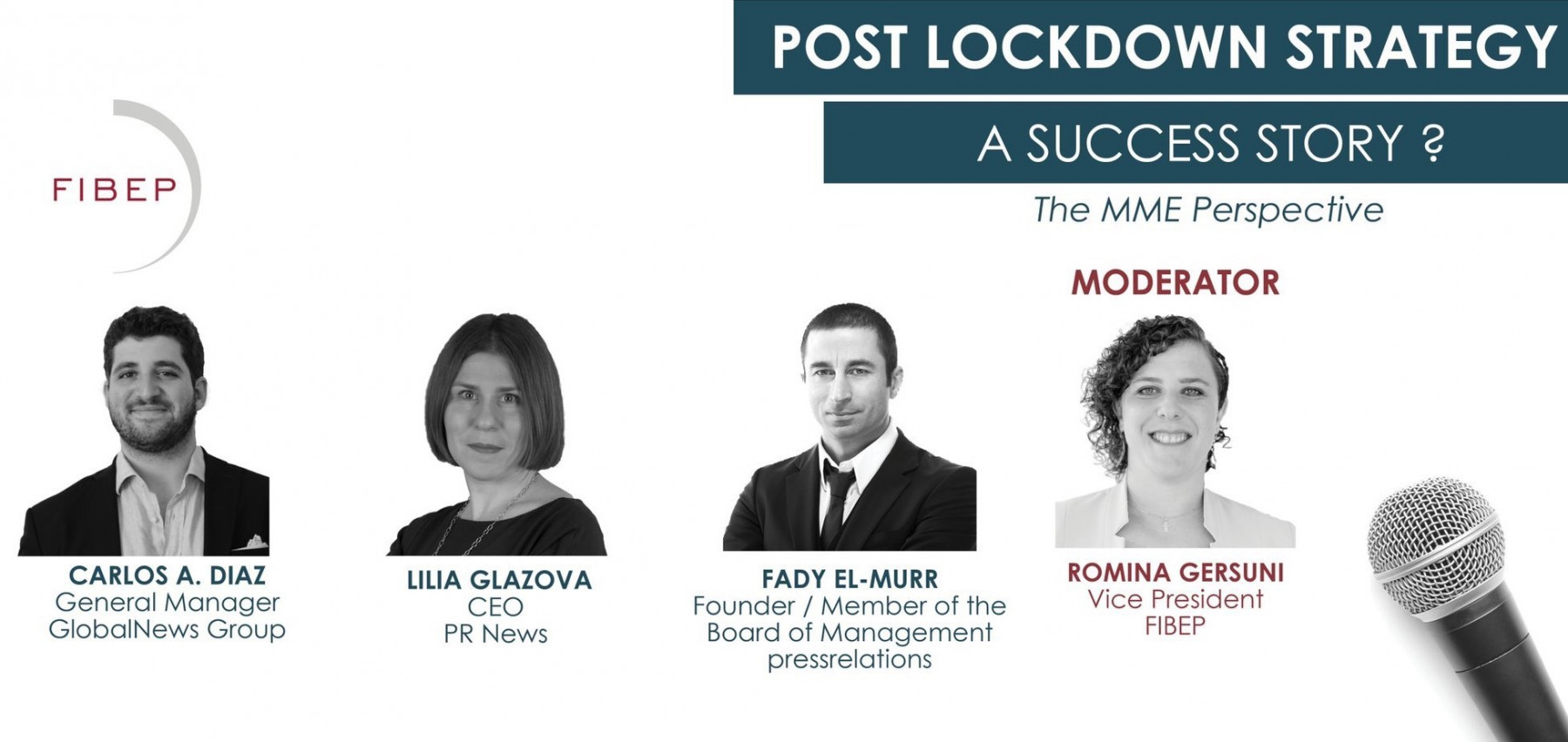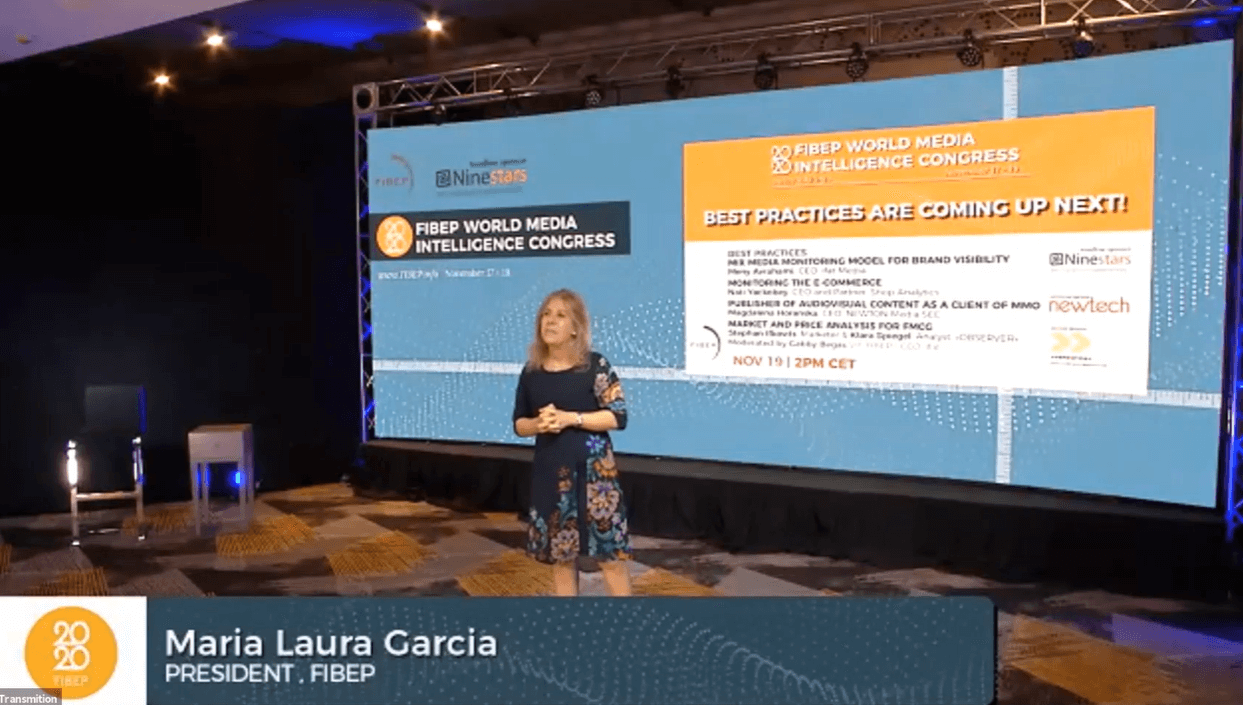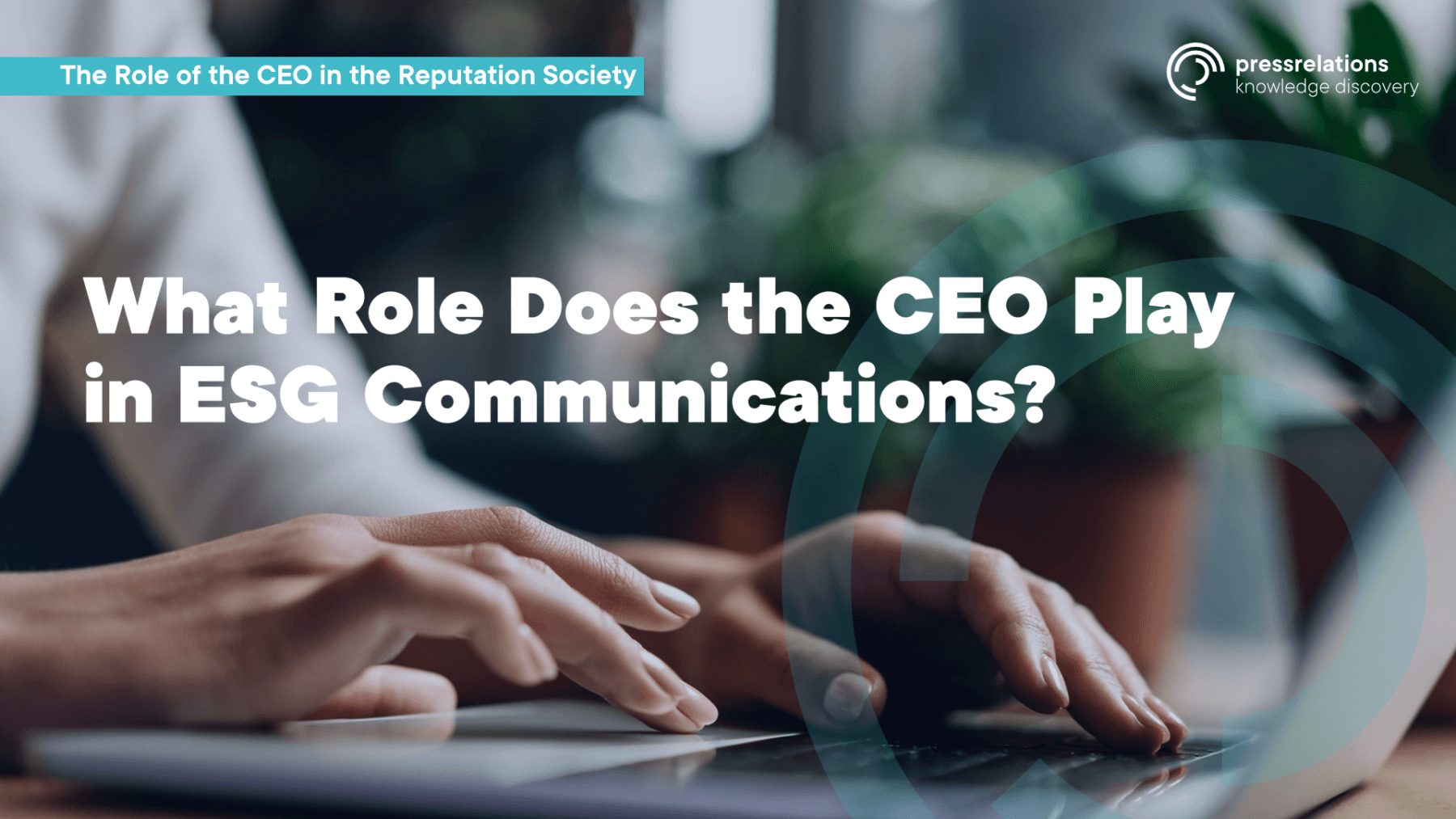On September 24th, FIBEP hosted an informative panel discussion on some of the hottest topics from their ongoing interview series, such as online business etiquette, trust in media, data consumption, and business ethics. Featured speakers were Carlos Díaz, General Manager and board member at GlobalNews Argentina, Lilia Glazova, Chief Executive Officer at PR News Russia, and our own Fady El-Murr, co-founder and board member at pressrelations. The discussion was moderated by Romina Gersuni, Vice President at FIBEP and Global Strategy Manager here at pressrelations.
Below, you can find some highlights from the discussion.

Q: Considering that we are likely to experience a second lockdown. What practices should be applied, amid for instance, business culture and structure, digital sovereignty, meetings, and events?
Fady El-Murr: “…The most important thing for us at this point is (…) being as a company really transparent on what is going on right now. We established a format every two weeks, were we see all our staff members, all hands we call it (…) There we are really transparent with the figures of the company at this point, we are transparent with the strategy (…) also with the information from other countries, from other media monitoring companies, so that everybody understands were we are and what we do, and what is going to be for the next four to eight weeks (…) This has become a really powerful instrument for us to communicate with everybody…”
Lilia Glazova: “… It was more important (…) to tell people about balanced life (…) you need just to stop to look at the screen (…) In Russia we are waiting for the second wave (…) big companies, most of them made the decision that it will be home office until the end of the year (…) For the company it was very important to (…) be transparent, but also to show responsibility. (…) Now is growing a new culture of business meetings, we call it a new culture of online business ethics. How you communicate on zoom? (…) 5 minutes late on zoom it’s a crash, and offline we would be just drinking coffee (…) it was important also to educate our own people…”
Q: How should the media intelligence industry evolve amid trust in media? Is there a need for an industry shared framework or should there be something else?
Fady El-Murr: “… We as media monitoring companies have a special role within this situation (…) Since CORONA I think everybody understands that infodemic, fake news, disinformation, misinformation it’s a huge thing. So, we see ourselves, in our role, not specially as someone who wants to help publishers. If we define disinformation, then I think fake news is a sub feature of disinformation (…) publishers can give disinformation because of many reasons, one reason might be because (…) they have to cut costs (…) there might be many reasons (…) We want to give the users, not the publishers, but the users, systems so that they can make their own decision on which message, which news I want to believe in…”
Carlos Díaz: “…As an industry we should be much more involved in creating, at least, a set of frameworks that define how we can help the media. How we can work with them, for them or even them for us, in order to enhance trust, demonstrate what is trustworthy, and actually pick or find what is truly trustworthy in the market (…) As an industry we do have an opportunity, but there is a lot of work to be done (…) I hope that you are (…) working towards at least, some kind of guidance for (…) FIBEP members, to be able to help the media and to be able to assist trust and enhance trust. I think in those two areas we do have both opportunities and I would even say a democratic mandate of what we do…”
Q: If the market is consuming more digital media now, does this mean that there are new areas for the media intelligence industry to develop?
Fady El-Murr: “… This could be one main source, the emms, the chats and LinkedIn as bases for information. (…) I recognize as well that TikTok became more popular, since TikTok offered advertisement (…) and podcast has been popular since last year in Germany, so we have also an offer for that. But, coming back to monitoring WhatsApp, I think, even if it is technically possible to monitor WhatsApp, I ‘m not sure that I’m willing to do this, I wouldn’t monitor on an ethical perspective, I wouldn’t monitor this sort of chat tools…”
Lilia Glazova: “…Most of the people do not recognize were they read the story (…) so if you ask yourself, what was the resource were I read it?, probably you wouldn’t remember it, and there is only one group of people, more business active (…) who really remember where they read something (…) If we go back to media consumption (…) as media monitoring companies (…) there are two issues to solve, first is monitoring of messengers. So it is of course easy to monitor Telegram, because they have open API (…) in my case I look at the traffic, mobile traffic, on WhatsApp and it is , for a lot of people it is 50% of their usage of mobile phone (…) our audience is there. (…) It will be a challenge for all of us, how to monitor this wonderful podcast…”
More highlights and a full recording of the panel discussion can be found in the original FIBEP blog post.





